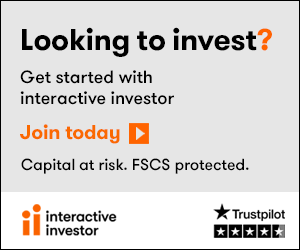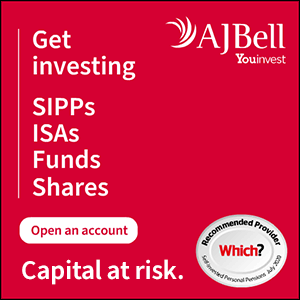When it comes to investing, there are lots of different avenues you can take to try and generate a return on your money.
Funds and shares are two common options for doing so. Though you might be wondering: funds vs shares, which is better?
Continue reading my article to find out exactly what the differences between the two are, and which would be more suited to you.
Also consider: Best stocks and shares to buy now
Key takeaways
- The biggest difference between funds and shares is that buying a share is like owning part of a company, whereas funds invest your money for you in a range of assets.
- Funds are considered lower risk than individual shares, but funds usually offer slower growth.
- You are typically required to have more knowledge and spend more time researching when you invest in shares, while funds require less research.
- With funds, you have little control over how your money is invested, while shares give you total control over investment decisions.
- Company shares are more suited to active investors, whereas funds could be better for more passive investors.

Investing in shares is much like buying a stake in a company – when that company performs well, the value of your investment will usually rise. There are many benefits to investing in this way, so continue reading to find out what these are.
You can trade shares in different ways
When it comes to trading shares, you have a decent amount of flexibility when it comes to how you want to trade them.
For example, you can decide to buy shares as long-term holds. This is when you hold your shares for a long period, typically at least five years, in an attempt to gain better long-term returns.
Another way you can trade shares is day trading. As the name suggests, this is when purchases and sales are made on the same day. Of course, day trading works best with more volatile shares since their value will decrease and increase quite frequently.
There is also derivative trading, which, simply put, is like betting on how you think a share will perform. For example, you can bet that Amazon shares will decrease, which is called a short, and if they do decrease in value, you will turn a profit. Derivative trading can be highly complex though, so you should ideally only get involved if you have a deep understanding of the market.
Shares are easy to buy
One of the amazing things about investing in company shares is how easy the whole process is. There are many different investment platforms out there that allow you to trade in different company shares around the world; all it usually takes is searching for the instrument and making the purchase.
It takes minutes to set up investment accounts and purchase your first shares. You should ideally shop around for different trading account providers though, as they will usually have different features and fee structures available that may suit some trading strategies more than others.
You have complete control over your portfolio
You are the one making the decisions when it comes to how your money is invested. So, if you’ve been following a company for a while and want to get involved by investing, you can do so.
Similarly, if you want to invest in more sustainable companies, then you can. The power is completely in your hands when it comes to how your money is invested.
However, you should remember that with great power comes great responsibility – since you have total control over how your money is invested, you should make sure you diversify your portfolio to help manage risks.
Of course, most good things have their downsides, and company shares are no different. Read on to find out what these disadvantages are, and some of the things you should keep in mind before you decide to invest.
There is usually more risk involved
Investing in shares can potentially offer greater growth, though this comes with a downside in the form of risk.
When a company starts to perform poorly, investors will often sell their shares to limit their losses, further driving the prices of your investments down.
If a company fails or goes out of business, you could lose all the money you have invested.
If you make a poor investment, or if the stock market takes a sudden downturn, then chances are you are going to lose some, if not all, of the value in your shares.
If you can’t afford to lose your initial investment, or if you aren’t as confident making your own investment decisions, then you might want to invest in funds instead.
It can require more knowledge and be more time-consuming to keep up with markets
As previously mentioned, if a company starts to perform poorly, the value of its shares will typically decrease. When the share value of a company you have invested in starts to decrease, you might want to sell your shares to limit losses.
You can stay on top of this by staying informed, but this can become quite time-consuming. By reading industry news, earnings reports, expert opinions and even listening to some podcasts, you might be able to get a sense of how the value of a company will move.
But, as you can see, this is a lot to keep up with.
It can be more expensive
Depending on the volume of shares you are trading, you could end up paying a lot in trading fees.
Of course, the amount you pay will depend on the trading platform you decided on. Some may have a fixed fee for each trade, whereas some may charge a percentage of the total amount invested.
It is for this reason that you should shop around for different trading platforms before you invest, as some may be more suited for those who want to make long-term trades on an infrequent basis, and some may be better for investors who want to trade in a large volume of shares.
eToro
- Best for low-cost trading
- Minimum deposit £10
- 0% commission trading stocks
{etoroCFDrisk}% of retail investor accounts lose money when trading CFDs with this provider. You should consider whether you can afford to take the high risk of losing your money. Your capital is at risk. Other fees apply. For more information, visit etoro.com/trading/fees
The benefits of funds
Instead of investing in a single company, you can instead choose investment funds. Fund managers then invest your money for you, and you are in turn paid back in dividends from their investments.
You can, of course, still make money with funds by selling your units in the fund back for more than you bought them for, much like trading shares. This can come with a wide variety of benefits, so keep reading to find out what these are.
Funds usually require less research before purchase
Since you are investing with fund managers who are potentially much more experienced than you, you generally won’t need to make any complex decisions about how your money is invested.
This means that you won’t have to do nearly as much research before you make the purchase – the only research you might have to do is what type of fund to invest in.
This could make them perfect for beginner investors since you won’t have to make any potentially unwise decisions on your own.
They are more passive investments
Since the investment decisions are made by fund managers, this can make funds the perfect passive investment.
This is when you minimise buying and selling, known as speculating, and instead buy investments for a long hold in order to make money over a longer period of time with little input from yourself needed.
They can allow you to instantly build a diversified portfolio
Fund managers will usually diversify their portfolios across a large set of instruments and securities.
Since this is technically your money, you can think of your money as being instantly diversified. Even if you were to invest in a fund alongside company shares you already own, this can be a great way to spread your investments and limit some of the risks involved with investing.
Due to the fact that fund managers are spreading their investments across a wide variety of sectors, this usually equates to funds being typically lower risk and far less volatile than individual company shares.
You can access a wider range of investments with a smaller amount
When you invest in individual shares, you need to have the exact amount of money to buy a share. If you wanted to invest in more expensive companies though, such as Amazon or Tesla, you would need a large amount of money to buy just one share.
If you have a smaller amount to invest but have your heart set on investing in a more expensive company, then a fund could be the perfect route to do so.
The disadvantages of funds
While there are many benefits to investing in funds, there are also things you should keep an eye out for before you decide to invest. Read on to discover what these downsides are, and things you should remember if you think you like the sound of funds.
There are fees involved with funds
You’ll likely have to pay fees to the fund manager for administering your investment.
These fees vary from fund to fund, though you can typically expect to pay an entry charge when you first invest. This covers the cost of setting up your investment and any administration costs the purchase may have incurred.
You could also face an ongoing charge in the form of quarterly or yearly payments which will cover the actual management of your investment, and even potentially a performance fee which is usually placed when the fund generates positive returns.
You may experience slower growth
Fund managers will tend to aim for lower-risk investments in their funds in order to minimise loss of value.
While this does make funds more low-risk investments, the flip side of this is that your investment may experience slower growth. This is why funds are more suited for long-term, passive investors.
Of course, there are funds out there that may offer the promise of higher returns as they aim for riskier investments, but as you might’ve guessed, this will involve more risk to your original investment.
No control over the investment decisions
Since a fund manager is the one that controls how your money is invested, you have no control over these decisions.
This means that if the fund is investing in a company you don’t like, or one that has views and ideals that don’t align with your own, there is nothing you can do to influence the decision of the fund managers.
If you have strong objections to investing in some companies, you should review the underlying investments that the fund makes before you give them your money.
A share is something that you can purchase that represents a percentage of a company. When you buy a share you are, in a sense, a part-owner of the company you invested in.
Many investors generate profit from shares by buying them when they are at a lower price, and then selling them again when the price increases. Some companies even pay dividends, a regular payment with value depending on how the company is performing.
How do you trade shares?
If you want to start trading shares yourself, there are many different trading platforms out there that make it simple to invest your money.
Each different platform has its own set of benefits and disadvantages, such as fee structures, so you should read my comprehensive guide on some of the best trading apps if you want to find out the best place for you to start trading shares.
Before you choose a provider, ensure that it’s authorised and regulated by the Financial Conduct Authority (FCA) and listed on the FCA’s Financial Services Register.
What are some good companies to invest in?
A good way to find out some of the better investments could be to read guides that offer advice on some companies to keep an eye on. My weekly share tip guide, for example, will give you an idea of some of the companies that are worth investing in.
You should also try to keep up with industry news, as this will keep you informed about what companies are doing and how their performance could be affected.
What exactly are funds?
Funds, often called mutual funds or investment funds, are a type of investment that includes a set of instruments or securities.
Instead of investing in an individual company as is the case with shares, with a fund you are instead investing with a fund manager who buys a wide variety of different companies and other assets.
The value of the fund is usually determined by the net asset value (NAV), which is the per share/unit price of the fund at a certain time or date.
The fund manager will charge you different fees for investing your money for you, and you will be paid back in dividends depending on the fund’s performance. Profit can also be made from investing in a fund when the cost of units in it are lower, then selling again when the value increases, much like speculating on shares.
A fund is usually well-diversified too, meaning they tend to be lower-risk investments.
What are the different types of funds?
There are different types of funds available to investors. Each comes with its own set of benefits and downsides, so you should read up on these before you decide to invest.
Index funds
Instead of investing in a variety of different companies, an index fund instead tracks the overall performance of a stock market index.
Index funds are purchased through trading platforms much like individual shares, but when you buy an index fund, the purchase order won’t be completed until the end of the trading day. These same rules apply when you’re selling funds.
FTSE 100 index funds or FTSE 100 ETFs are funds investing in every company listed on the FTSE 100 index.
Actively-managed fund
Active funds are, as the name suggests, funds that are updated and managed on an active basis.
For example, the fund manager will conduct research about potential investments, then make their investments accordingly.
There are a few different types of actively-managed funds, such as:
· Equity mutual funds
· Debt mutual funds
· Hybrid funds
Open-ended investment companies (OEICs) are examples of actively-managed funds, which are always accepting new investments and regularly update the instruments they hold.
Exchange-traded funds (ETFs)
An exchange-traded fund (ETF) is a type of fund that usually tracks a sector, a market or a market index. For example, you might choose an ETF that invests in the Nasdaq, in cybersecurity companies, or in companies with sustainable credentials.
This is much like an index fund, but ETFs differ in that they can be bought and sold at any time of the day through a regular trading account.
ETFs also tend to be much cheaper to run than regular funds, which means they often ask for lower fees. You may still need to pay a trading fee since ETFs are purchased on trading platforms, but the regular fees could be lower.
Both index funds and ETFs are forms of passive funds.
Investment trusts
An investment trust works much the same as a fund, with some key differences. For starters, investment trusts are a listed investment company of which shares can be purchased and traded on the market. Since they issue a fixed number of shares, this makes them a “closed-ended fund”.
Investment trusts are also allowed to hold back 15% of their total profits, whereas fund managers have to distribute their profits annually.
Which is better: shares or funds?
Whether shares or funds are better for you will depend on your reasons for investing, your experience, and your investment strategy. If you are a less experienced investor who is looking to make some long-term investments, then a fund could be better for you.
If you have more experience with investing and want to buy and sell for potentially higher profits, and are prepared to accept more risk, then shares could be more suited for you.
Are shares and funds both safe?
While funds are typically considered a safer investment than individual shares due to diversification, there is still risk involved with both.
Even those as informed as possible about how the market is performing could lose money through investing. Sudden and unpredicted events that cause serious market downturns, like Covid for example, can come out of the blue and decrease the value of investments.
Please note
The value of your investments (and any income from them) can go down as well as up and you may not get back the full amount you invested. Past performance is not a reliable indicator of future performance. Investments should be considered over the longer term and should fit in with your overall attitude to risk and financial circumstances.



